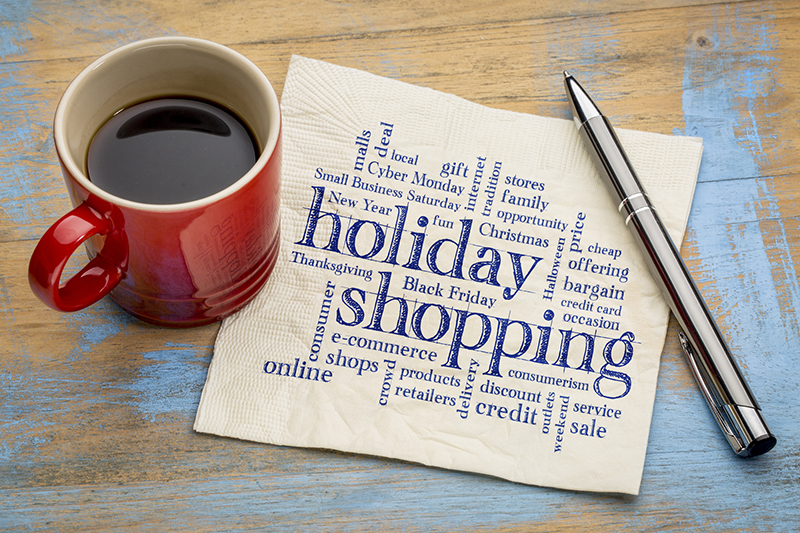The holidays, and especially the months to follow, are an important time to have your finances in order. While we have all struggled in many different ways in the past two years, it’s likely a true necessity, now more than ever, not to overspend.
There is plenty of pressure to look your best, travel to all your friends and family gatherings, give the perfect gifts, and be the life of every holiday party, but there is no amount of money that’s worth the cost of debt or personal finance problems in the aftermath.
Three Tips to Keep Your Holiday Shopping in Check:
1. Make a list and check it twice!
Your shopping strategy is based on a budget if you’re trying to save money, right? Well, if you’ve ever been grocery shopping on an empty stomach and without a list, then you might have felt the hunger to purchase everything that looks tasty. The desire to load up on everything around you for everyone you love could leave you in a financial black hole. Make your list. Have items for each person - and stick to it!
2. Do your research and start as early as you can.
The holidays probably aren’t on your radar in the middle of summer, or even two days after they’ve ended. But they should be. Depending on what gifts you’re hoping to buy and what holiday expenses are in store for your budget, you might want to get in the habit of considering them year round.
Try purchasing items from festivals or while traveling and save them for the end of the ear. Or try adding one thing every now and then to your shopping cart when it reminds you of your loved ones. This makes for more thoughtful gift giving that doesn’t feel forced or pressured by a timeline. It also comes with a good story! This saving tip could easily be considered before or after holidays to utilize and implement the following year.
3. Try homemade gifts from the heart.
Showing up to a holiday party with a nice bottle of wine might seem like an Instagram worthy moment, but giving a gift that shows time and effort are the ones people post about and remember for years to come.
Spending your energy on someone makes them feel special and is ultimately more meaningful to you as well. Homemade gifts enable gratitude and allow you to get creative. Cookies, cakes, cards, crafts and other hand goods can be a fantastic option. If you’re a crafty person and all about DIY, try making jewelry, pottery or festive ornaments to contribute to your holiday savings.
After the expensive gifts, festive light-up sweaters, and fancy dinner parties, it's okay if you went a little over budget. But don't panic.
Three Ways to Catch Up After Spending:
1. Have a plan.
Look at those post-holiday statements, what you need to make up in savings, and consider your usual monthly bills. A benchmark that can help: NerdWallet recommends the 50/30/20 budget. Earmark 50% of your monthly take-home income to needs, 30% to wants, and 20% to savings and debt repayment. If your debt has increased, you’ll want to dip into your wants category to tackle it faster. Budget spreadsheets and templates are available for free online and can point you in the right direction.
2. Don’t feel guilty about returns.
Additionally, return or exchange any gifts or purchases you don’t intend to keep. Wait too long and you could miss the return window and lose out on a refund. Furthermore, redeeming points on returns or using gift cards can function in a similar way to cash in your day-to-day spending.
3. Create an allowance, not a budget.
We know it’s not realistic to eliminate all spontaneous spending. Be intentional about the amount you will need or want to spend. Determining a set amount of money you can afford to spend on “fun things” each month. Then, create one checking account for bills and a separate account for discretionary items only.



